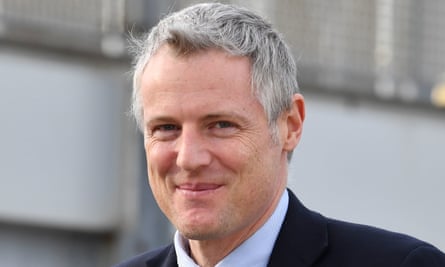Saving the world’s forests will be one of the cornerstone achievements of the Cop26 climate summit, the UK environment minister Zac Goldsmith has said, with some of the biggest forested nations and consumers of forestry products signing up to an “unprecedented” conservation deal.
On Tuesday, more than 100 world leaders will commit to halting and reversing deforestation and land degradation by 2030, backed by nearly £14bn in public and private funding. Major producers and consumers of deforestation-linked commodities including Indonesia, China, Brazil and the US have put their name to the deal, which aims to curtail the second largest source of greenhouse gas emissions.
Lord Goldsmith told the Guardian: “This is a genuinely unprecedented package. People will be able to justify having hope [that the world’s forests can be saved]. This puts us on a road to recovery and renewal.”
He said it had “not been easy” to persuade many of the countries involved to join, as the deal requires not just a commitment to halt deforestation – which has never been achieved before, despite numerous failed attempts – and provide forested countries with funds to replace the money they would have made from exploiting forested land, but also to reforming aspects of commodity markets so that buyers cannot get away with importing commodities produced from deforested land.
“The different parts of the package are mutually reinforcing,” said Goldsmith. “We are sending a very serious signal to the markets, we have a good pledge from buyers. The market has been blind to the value of the environment … The [current economic] incentives to deforest are 40 times bigger than the incentives to keep healthy forests, so changing that is difficult.”
The line-up of countries includes China and Brazil, as well as smaller developing countries, and some big buyers of forestry products which will clean up their supply chains.
“There are some surprising countries in there, and this is a pretty bullish pledge,” said the Conservative peer, though he declined to name any countries. “We have managed to persuade some of the trickier customers to come on board.”
Goldsmith, son of the late billionaire financier Sir James Goldsmith, has long been a notable environmentalist, a former owner of the Ecologist magazine and a campaigner and philanthropist for conservation projects. His political career as an MP, which included a campaign running against Labour’s Sadiq Khan to be London mayor that was marred by accusations of Islamophobia, was ended by defeat in the 2019 election. Soon afterwards he was put in the Lords, controversially, by Boris Johnson. He was charged by Johnson, an old friend and fellow old Etonian, with what he said was a personal passion for protecting nature and combating the loss of species and habitats.
“Putting nature at the heart [of the Cop] has been my obsession. It’s mad that nature has always been more or less forgotten [in climate negotiations],” said Goldsmith.

The difficulty of achieving the broader deal hoped for at Cop26, of drastic cuts in greenhouse gas emissions in line with scientific advice, was apparent on the first day of the summit, when more than 120 world leaders gathered in Glasgow. António Guterres, the UN secretary general, delivered a gloomy forecast of the prospects. “Recent climate action announcements might give the impression that we are on track to turn things around,” he said. “This is an illusion.”
In this context, having a side deal on forestry in the bag is a major boost for the UK as hosts. However, some countries and analysts told the Guardian the agreement, while important, was flawed and lacking in some key respects, with too little cash being dedicated to helping poor countries preserve their forests, and too little emphasis on reducing demand for the commodities – such as soy, palm oil and beef – that drive deforestation in the first place.
John Sauven, executive director of Greenpeace, said: “Everyone wants to see zero deforestation, not least the indigenous peoples whose homes and livelihoods are under threat. But without tackling the drivers of destruction it’s like whistling in the wind to think cash alone will work. Cattle and soya for animal feed are wiping out the Amazon and savannahs of Brazil. The industrial meat industry, like its counterpart in the fossil fuel sector, needs to come to an end.”
He added: “Every climate scientist is saying we need to eat less meat. We won’t save the forests until politicians stop ignoring that message.”
Indigenous leaders, who have been shown to be the best guardians of the natural world by several studies, have also said they were not consulted on the declaration, adding that many leaders making the commitment had a history of breaking promises on protecting indigenous rights.
Goldsmith said the deal would benefit forest dwellers. “Indigenous people have always been seen as second tier [at Cops], they have never been given this support before,” he said. “I think for them this support will be a turning point at this Cop.”
He added: “When you put it all together, it’s a robust package, trying to get as many major countries together as possible to commit to ending deforestation. But it’s worth nothing unless they back this up with policies. It will be our job to make this real.”
